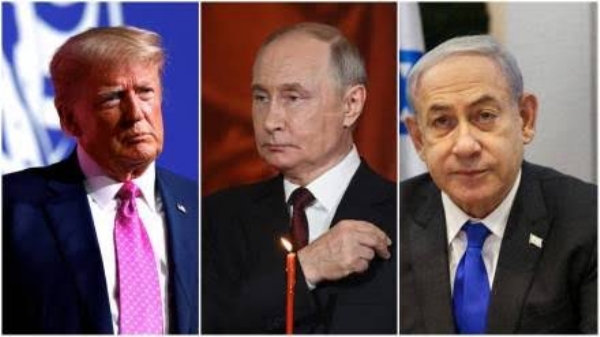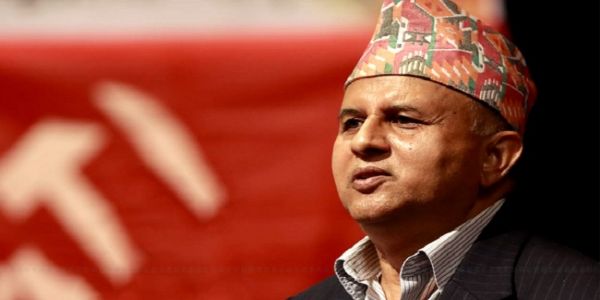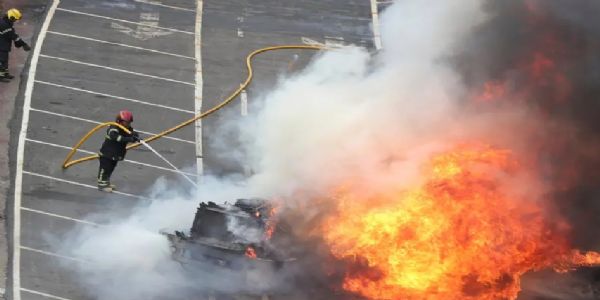
Washington,September 11(HS): In less than 24 hours, President Donald Trump faces two formidable foreign policy challenges that underscore the limits of his influence over key allies and test his administration’s diplomatic resolve. Israel’s unprecedented airstrike on Hamas leadership offices in Doha, Qatar—a crucial U.S. ally and peace broker—destroyed a fragile ceasefire architecture that the Trump administration was heavily invested in, just days after the White House issued an ultimatum to Hamas on hostage release and truce acceptance. Israeli Prime Minister Benjamin Netanyahu’s decision to carry out the strike without prior effective consultation with Washington casts doubt on Trump’s ability to steer Israeli actions, fueling suspicions of American complicity despite official denials of prior approval.
The raid resulted in multiple fatalities, including senior Hamas figures’ relatives and a Qatari security officer, while Hamas’s top leaders reportedly survived. Qatar condemned the attack as a blatant violation of sovereignty and international law, and the White House expressed sharp disapproval, emphasizing that unilateral strikes undermine both U.S. and Israeli goals. This incident severely jeopardizes ongoing peace negotiations, heightening regional tensions with possible long-term diplomatic ramifications.
Simultaneously, in Eastern Europe, Russia escalated conflict by launching a coordinated drone incursion deep into Polish airspace—NATO territory—marking the most direct challenge to the alliance since World War II. Despite Moscow’s denials, the calculated violation prompted alarm among NATO members and underscored Vladimir Putin’s willingness to test both NATO and Trump’s resolve. Poland’s prime minister warned of the grave dangers of this provocation, as the U.S. President’s initial muted response contrasted sharply with his vocal condemnation of Hamas actions, leaving Western allies questioning Washington’s commitment to collective defense under Trump’s leadership.
European officials are reportedly coordinating with the U.S. on fresh sanctions, but lingering doubts remain about Trump’s willingness to act decisively, particularly given his historically ambivalent stance toward NATO. The juxtaposition of these twin crises, rooted in Trump’s closest allies defying his diplomatic overtures, highlights a mounting test for his administration’s ability to maintain strategic partnerships, assert American influence, and manage global conflict.
As each situation unfolds, the White House faces mounting pressure to demonstrate that it can effectively respond to these simultaneous geopolitical challenges without appearing constrained or overshadowed by the very leaders it counts as partners.
---------------
Hindusthan Samachar / Jun Sarkar







